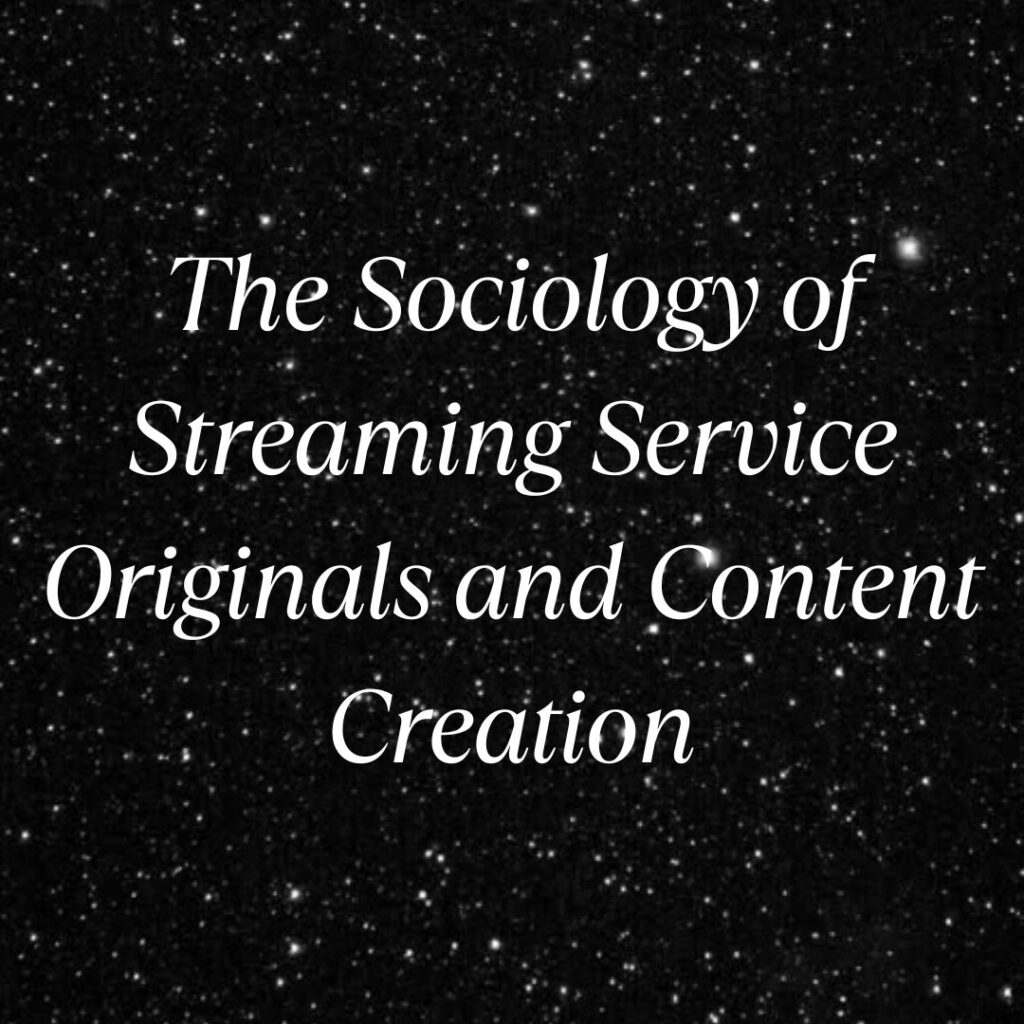In the era of digital entertainment dominance, streaming services have revolutionized how we consume media. With platforms like Netflix, Hulu, Amazon Prime Video, and Disney+ producing their own original content, the landscape of television and film has undergone a profound transformation. This phenomenon not only shapes our viewing habits but also reflects and influences broader sociological trends in society.
Evolution of Streaming Services and Original Content
Streaming services emerged as a response to changing consumer preferences for on-demand, personalized entertainment. Netflix, initially a DVD rental service, pioneered the shift to online streaming in the mid-2000s. Since then, its transition to producing original content, starting with “House of Cards” in 2013, marked a strategic pivot towards content creation rather than mere distribution.
Other platforms quickly followed suit, recognizing the value of exclusive, original programming to attract and retain subscribers. Amazon Prime Video launched acclaimed series like “The Marvelous Mrs. Maisel,” while Hulu found success with “The Handmaid’s Tale.” Each platform’s unique content strategy not only competes for viewership but also shapes cultural conversations and consumer identities.
Societal Impact and Cultural Reflection
Original content from streaming platforms often mirrors and comments on contemporary social issues. For instance, “Orange is the New Black” on Netflix addresses issues of race, gender, and incarceration, sparking discussions about criminal justice reform. Similarly, “Dear White People” on Netflix confronts racial tensions on college campuses, resonating with audiences grappling with identity politics.
These shows not only entertain but also educate and provoke thought, contributing to a broader societal dialogue. They provide a platform for marginalized voices and perspectives often underrepresented in traditional media, influencing public perceptions and advocating for social change.
Economic and Creative Dynamics
The shift towards streaming service originals has also disrupted traditional entertainment industry dynamics. By bypassing traditional networks and studios, streaming platforms empower creators with more creative freedom and diverse storytelling opportunities. This decentralization of content production challenges established power structures, allowing for more inclusive narratives and diverse talent representation.
Moreover, the economic model of streaming service originals differs significantly from traditional television. Platforms like Netflix invest heavily in content creation, leveraging data analytics to tailor programming to audience preferences. This data-driven approach not only informs production decisions but also shapes content to maximize global appeal, transcending cultural and geographical boundaries.
Audience Engagement and Social Interaction
Streaming service originals have redefined audience engagement through interactive features and social media integration. Shows like “Stranger Things” on Netflix have leveraged fan communities on platforms like Twitter and Reddit to generate buzz and maintain viewer interest between seasons. This participatory fandom enhances viewer loyalty and contributes to a shared cultural experience.
Furthermore, the availability of entire seasons at once (the “binge-watching” phenomenon) encourages immersive, continuous viewing experiences. This binge culture reshapes social interactions as viewers discuss plot twists, character developments, and thematic elements in real-time, fostering virtual communities around shared interests.
Future Trends and Sociological Implications
Looking forward, the sociology of streaming service originals will likely continue to evolve with technological advancements and shifting consumer behaviors. The rise of global streaming platforms like Netflix and Disney+ expands access to diverse content worldwide, promoting cultural exchange and challenging national media regulations.
Additionally, the integration of artificial intelligence (AI) and machine learning in content recommendation algorithms personalizes viewing experiences further, anticipating viewer preferences and shaping content consumption patterns. This data-centric approach raises ethical concerns about privacy, algorithmic bias, and the commodification of personal data in entertainment consumption.
In conclusion, the sociology of streaming service originals and content creation highlights how digital platforms redefine cultural production, consumption, and societal interaction. By examining these dynamics, we gain insights into the interconnectedness of media, technology, and social change in contemporary society.
Streaming services not only entertain but also serve as cultural mirrors, reflecting and shaping our collective identities, values, and aspirations in the digital age. As we navigate this evolving landscape, understanding the sociological implications of streaming service originals is essential for comprehending their broader impact on individuals, communities, and global audiences.






